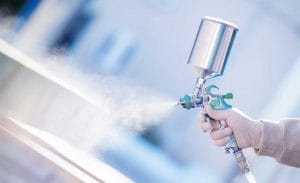1234 of 4


| Product sustainability | Latest advisories | Consulting expertise | PFAS restrictions |
Regulatory and scientific consulting
For over 30 years TSG has provided companies around the world with regulatory consulting and scientific expertise. Our experts are highly knowledgeable in the core sciences and public policy decisions that are used to structure and implement regulations governing the manufacture, use, and marketing of chemicals and chemical products. By combining this knowledge with our industry experience, we provide companies with comprehensive services from the early stages of product development to marketplace entry and ongoing compliance & defense.
Regulatory advice

With offices throughout the US and Europe, we can help you with navigating the complex, global regulatory environment.
US: Federal & State
We provide state, federal and international expertise on a wide range of scientific and regulatory issues. Our clients include chemical, pesticide, medtech, consumer product, food, personal care and animal health companies, as well as industry groups, trade associations, and law firms.
Europe: GB; EU & Member States
We provide regulatory and scientific support on the use and approval of a wide range of chemical substances and products across Great Britain and the European Union. We have offices in France, Spain, Germany and Great Britain, offering local knowledge, language and established relationships with regulatory offices in many jurisdictions.
Agrochemicals

TSG’s agrochemical regulatory consulting services support your business from product innovation through go-to-market.
Biocides / antimicrobials

TSG’s biocide / antimicrobial pesticide regulatory consulting services support your business from product innovation through go-to-market
Industrial / specialty chemicals

TSG can help you with all aspects of regulatory and scientific support for industrial and specialty chemicals.
"Your service has an outstanding quality, so we do not think there is anything that should be changed or improved."
"Valuable qualities in project manager: professionalism, quick response times, accuracy, knowledge of our brand and regulatory requirements."
"We prefer to go with TSG because they are a large firm with breadth and depth of expertise. We need knowledge of scientific affairs, not just the regulations. We also need to have confidence they have solid networks and a positive reputation with key regulators."


What's new?
Perri Moeller joins the HCPA’s Sustainability and Product Stewardship Council (SPSC) Board
19 April 2024
Five ways to ease the regulatory journey for biological products
16 April 2024
Final TSCA fees rule | US EPA
07 March 2024
Introducing TSG Forum

TSG Forum provides the regulatory community with high-quality conferences, training, and associated events. Spanning different chemical sectors and scientific disciplines, our events are designed specifically to meet the changing needs of the regulatory community.

About Science Group
Science Group is an international science, engineering and technology (“SET”) business providing a range of services to the medical, defence, industrial, food & beverage and consumer sectors, supplemented by a strategic products division where the Group holds leading market positions in associated technology sectors.
